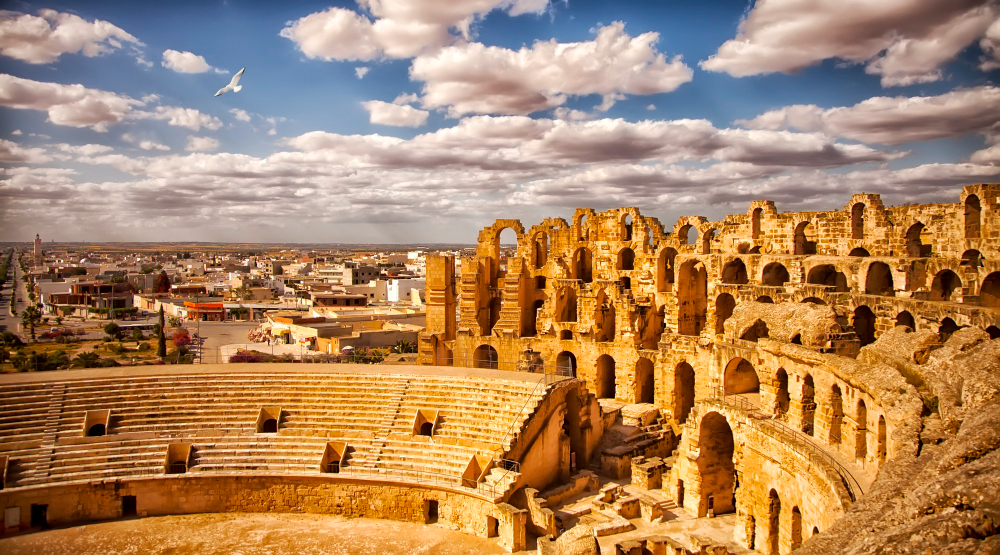
Tunisia has rapidly emerged as a sought-after destination for medical tourism, particularly among patients from Europe, North Africa, and the Middle East. Its close proximity to Europe, affordable treatment options, and a long-standing tradition of healthcare excellence have positioned Tunisia as a convenient and cost-effective alternative to Western medical systems. Cities like Tunis, Sousse, Monastir, and Sfax are home to modern private clinics and hospitals equipped with state-of-the-art technology, skilled professionals, and multilingual staff.
Whether patients seek cosmetic enhancements, fertility treatments, orthopedic procedures, or specialized care such as cardiovascular surgery or ophthalmology, Tunisia offers a balance of medical competence and Mediterranean hospitality. The country blends its reputation for hospitality with medical professionalism, often combining post-treatment recovery with spa services or thalassotherapy—a Tunisian specialty.
Tunisia is especially well-known for cosmetic and plastic surgery, including facelifts, rhinoplasty, liposuction, and body contouring, performed by highly experienced surgeons. Dental treatments, including implants and smile makeovers, are also popular due to competitive pricing and high clinical standards. Tunisia has also made major strides in IVF, orthopedic surgeries like hip and knee replacements, bariatric surgery, and cardiovascular interventions.
Thalassotherapy, a therapeutic use of seawater and marine climate, is uniquely Tunisian and often integrated into medical recovery. Patients often opt for inclusive care packages, which cover surgery, recovery in medical spas or seaside resorts, and even local excursions—all at a fraction of Western costs.
Tunisian doctors often receive part of their training in France or Belgium and are well-versed in international medical protocols. French is widely spoken in clinical settings, but English-speaking staff are increasingly available in private facilities that cater to international patients.
Tunisia is highly accessible, with short flight times from major European cities and simplified visa requirements for many nationalities. Tunis-Carthage International Airport and Monastir Habib Bourguiba International Airport are the main hubs for medical travelers. The government has actively supported medical tourism through infrastructure development, patient support systems, and partnerships with private clinics.
Upon arrival, many clinics offer airport pick-ups, translation services, and local coordination. Patients are typically provided with personalized treatment schedules, private rooms, and recovery support tailored to international expectations. Tunisia also respects cultural and religious sensitivities—halal food, female care staff for female patients, and prayer facilities are standard in many private clinics.
Tunisia’s Ministry of Health regulates and licenses all medical facilities, ensuring adherence to national and international healthcare standards. Private clinics that focus on international patients often pursue voluntary accreditation and adhere to EU-level hygiene and patient safety protocols.
Digital records, infection prevention, and patient privacy are strictly maintained. Legal avenues for dispute resolution and malpractice cases are available, although such occurrences are rare due to the high standard of care. Many providers offer follow-up services, online consultations, and in-resort recovery plans, particularly for procedures requiring longer recuperation such as orthopedic or fertility treatments.
Combining affordability, clinical expertise, and a warm Mediterranean setting, Tunisia is an increasingly attractive destination for medical tourists. Its legacy of medical excellence, reinforced by modern infrastructure and personalized care, ensures a comfortable and safe experience for international patients. Whether you’re considering elective surgery, fertility support, or post-operative recovery by the sea, Tunisia delivers a holistic, patient-friendly approach to global healthcare.
1. Why choose Tunisia for medical tourism?
Tunisia offers quality care at affordable prices with modern hospitals and trained doctors.
2. What treatments are popular in Tunisia?
Cosmetic surgery, dental care, IVF, orthopedic procedures, and thalassotherapy are top choices.
3. Are doctors in Tunisia well qualified?
Yes, many doctors are trained in Europe and follow international medical standards.
4. Is English spoken in hospitals?
French is widely used, but English-speaking staff are available in most private clinics.
5. Are the hospitals in Tunisia safe and clean?
Yes, private clinics follow strict hygiene and safety protocols regulated by the government.
6. Do I need a visa to travel to Tunisia?
Many nationalities can enter visa-free or with an easy e-visa process.
7. What airports are best for medical travelers?
Tunis-Carthage and Monastir Airports are the main international gateways.
8. Are cultural and religious needs respected?
Yes, hospitals offer halal meals, prayer areas, and gender-sensitive care.
9. Can I recover at a resort or spa?
Yes, many treatment packages include recovery in seaside resorts or wellness centers.
10. How much can I save compared to Europe or the U.S.?
Patients often save 50–70% on medical procedures, including care and lodging.
11. Is follow-up care provided?
Yes, many clinics offer follow-up through online consultations and recovery plans.
12. What is thalassotherapy?
It’s a marine-based therapy using seawater and spa treatments—unique to Tunisia.
13. What currency is used in Tunisia?
The local currency is the Tunisian Dinar (TND).
14. What is the time zone in Tunisia?
Tunisia is in Central European Time (CET), UTC +1.
15. How do I book treatment in Tunisia?
You can contact private clinics directly or work with a medical travel facilitator.